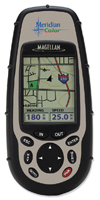Today's tightly-focused engineering specialties
might be a source of amazement to the great
engineers of the past. Many of them were
successful precisely because they understood a
diverse range of engineering concepts, and could
integrate that knowledge in new and startling
ways.

Biosystems
Engineering is the most 'integrative' engineering
discipline available today. It combines elements
from environmental, mechanical, civil, electrical,
and other engineering disciplines to produce the
broadest possible engineering skill set.
This engineering background is
complemented with a focus on biologically-based
systems -- critical for solving problems involving
people and the environment. Finally, Biosystems
Engineering adds the peripheral skills needed to
be
successful in an engineering career – intensive
design projects, computer and graphics training,
presentation skills, engineering economics, and
practical teamwork.
With this broad foundation, upper-level
Biosystems
Engineering students are uniquely positioned to
focus on almost any area of engineering that
interests them. This may be biofuels production,
environmental systems, machine design and
optimization, soil and water conservation,
instrumentation and sensors, bio-reactors, food
processing, waste treatment, or any of a host of
other possibilities.
ing.jpg' width=210>
As a Biosystems
Engineer, you can choose from an unusually diverse
range of job opportunities. You will be
well prepared to lead a team as a project engineer
because of your broad engineering background. You
could also choose to design products or processes in
a variety of agricultural, manufacturing, and service
industries.
width=210>
You might consider working as a consultant, in
product marketing, or for a management services
firm. Government agencies and educational and
research institutions also employ many Biosystems
Engineers, or you may want to enhance your career
by entering graduate or professional school.
You will be particularly qualified to work at the
interface of technology and living systems – whether
in food and fiber production, environmental issues,
or in a biological context.
width=210>
Because Biosystems Engineering programs across
the country vary in name, incorporate differing
amounts of other engineering disciplines, and lead to
such a diverse range of career paths, historical
salary statistics are limited. However, statistics for
the related field of Agricultural Engineering are
probably fairly representative. According to a recent
salary survey by the National Association of Colleges
and Employers, bachelor's degree candidates
received starting offers averaging $52,000 a year
and master's degree candidates, on average, were
offered $57,000.
Median annual earnings were $63,000. The middle
50 percent earned between $52,000 and $79,000.
High School Preparation
Successful Biosystems Engineering students
typically have a good high school background in
math, physics, and chemistry. Freshman
admission to the program requires 3 ½ units of
math, including trigonometry and geometry, in
addition to the general admission requirements of
the University.
A strong background in these areas will enable you
to more easily begin your college work. If you
are able to earn advanced placement credit in
some of these areas, you may have additional
options later in your degree program. These could
include taking specialized courses that interest
you, working in a lab, or contributing to a research
project -- providing valuable experience and
improving your employment opportunities.
Our students tend to
be
problem solvers who like to 'figure out' how
things work, and often have good spatial skills.
Other useful traits are good
communication abilities (both written and verbal),
experience with computers, and technical hobbies.
Admission chances are enhanced by high ACT/SAT
scores and a solid high school transcript.



